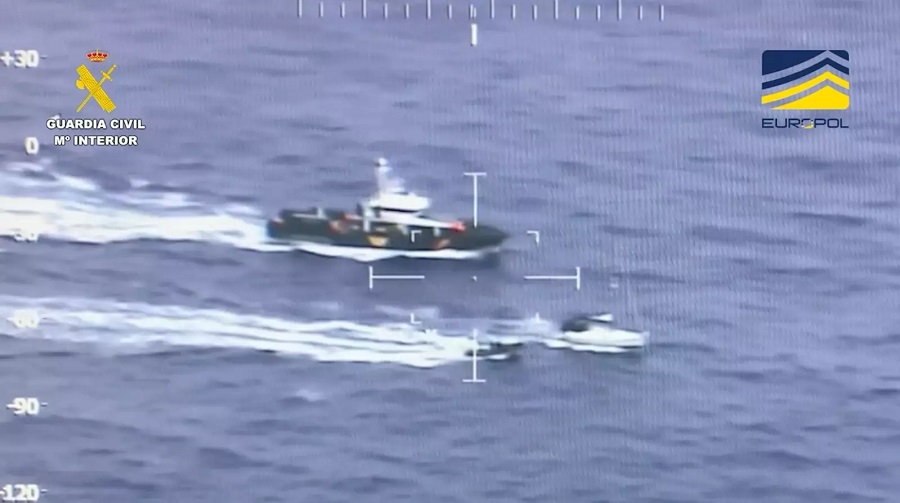Canary Island, Spain- In a significant international operation, Spanish Civil Guard officials have successfully intercepted a major cocaine smuggling endeavour en route to the Canary Islands. This operation, conducted with collaboration from law enforcement agencies in Croatia, Italy, and Serbia, has resulted in the arrest of four individuals directly linked to the seizure.
The Spanish Civil Guard’s initiative was bolstered by the assistance of Europol, the European Union’s law enforcement agency. Together, they managed to dismantle a criminal organization that had been facilitating the large-scale transportation of cocaine from South America to the European Union via the Canary Islands. This joint effort has highlighted the increasing capacity of criminal networks to collaborate closely across borders, allowing them to deploy members to various locations for extended periods to facilitate the trafficking of substantial drug quantities.
The investigation was initiated in March 2022, honing in on a Polish-flagged vessel that had established a temporary base in the Canary Islands. This vessel had aroused suspicion due to its suspected involvement in cocaine transportation. Over the subsequent months, law enforcement agencies meticulously monitored the vessel’s activities and crew. Notably, two individuals onboard drew attention: an Italian national associated with the Italian ‘Ndrangheta, and a Croatian national linked to the Balkan Cartel. Despite lacking any legitimate source of income, both maintained luxurious lifestyles while impeccably upkeeping the vessel.

The vessel’s tactics included sporadic trips meant to camouflage its operations. However, on July 27, 2023, Spanish authorities detected an aberrant journey to a remote location deep within the Atlantic Ocean. Departing from this point on August 2, the vessel fell under Spanish scrutiny. Just three days later, law enforcement officials raided the ship and made a startling discovery – a whopping 700 kilograms of cocaine were concealed on board. Simultaneously, ground-based officers in Spain apprehended a Croatian suspect and another individual of Serbian nationality. Both were suspected of orchestrating the drug smuggling enterprise from the mainland. Notably, these arrests also yielded the suspects’ phones, instrumental in coordinating their illicit activities.
Integral to the success of the operation was Europol’s role in facilitating information exchange and providing continuous analytical support to the investigation. Europol’s involvement extended to coordinating efforts between various agencies and offering remote support during the operation’s execution. This collaborative endeavour underscores the necessity of transnational cooperation in combating cross-border criminal activities effectively.
The joint operation led by the Spanish Civil Guard, in partnership with Europol and allied law enforcement agencies, has struck a significant blow against a sophisticated cocaine smuggling ring. By intercepting a substantial shipment en route to the Canary Islands, authorities have not only apprehended key individuals but also underscored the importance of international collaboration in combating such criminal enterprises.









